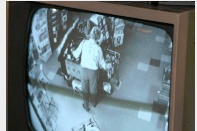 Japan and England have reported a marked increase in the incidents of elderly shoplifting in the last few years. The United States hasn’t shown as big of a statistical increase. However, experts believe the difference is due to reporting differences and the numbers will eventually show what they already know — elderly shoplifting is on the rise in the United States too.
Japan and England have reported a marked increase in the incidents of elderly shoplifting in the last few years. The United States hasn’t shown as big of a statistical increase. However, experts believe the difference is due to reporting differences and the numbers will eventually show what they already know — elderly shoplifting is on the rise in the United States too.
There are 2 identified cohorts currently working their way through the aging cycle, the Greatest Generation (raised during the Depression and living through World War ll) and the Baby Boomers (born 1946-1964). The people from both groups are dealing with some typical and some unique problems as they age.
Medical
In the past it was common for people to develop mental and physical complications during the aging process. It’s still common, but there’s a new twist. People are living longer and are much sicker than they’ve ever been. For many, an extended life doesn’t lead to quality of life, it only creates hardship.
Another problem is that aged people are vastly over medicated, which often induces cognitive impairment and creates new physical difficulties. Researchers at Harvard and the University of Toronto have studied the “prescribing cascade” and found that about 1 in 5 prescriptions written for the elderly were inappropriate.
Financial
People have always had to worry about how they were going to financially support their old age. But, for the first time ever, millions of people are struggling with the problem of outliving their money, possibly for years. Many have been or will be living inadequately on Social Security for a long time.
The Great Recession decimated many retirement accounts, hitting the boomers especially hard. A lot of the Greatest Generation didn’t know they needed a retirement strategy, because they didn’t expect to live this long. Scores of people, in both groups, don’t have enough to live on and not enough time, ability, energy or opportunity to fill the gap.
Social
Our fast paced, gadget focused, isolated, socially dysfunctional culture is a cliché. But, it’s also a real concern (especially for people who are used to a different, less lonesome time) because social interaction is one of the cornerstones of mental and physical health.
The aged are increasingly separated from their families as people have become more mobile over the years. Also, the longer they live the more isolated they become as friends, family peers and spouses start to die.
These challenges explain why there’s an increase of elderly shoplifting — depression, isolation, stress due to lack of resources (financial, medical, social), need for the product, loneliness, hostility, boredom, impairment of judgment and impulse control, lack of structure, low self-esteem caused by no meaningful work or interests, anger and feeling under appreciated. All possible characteristics of the average shoplifter, but for the elderly it’s the perfect storm.
Nicole Abbott is a writer and psycho-therapist with over 20 years of experience in the fields of mental health and addiction. She’s an educator, consultant, lecturer, trainer and facilitator, who’s conducted over 200 workshops, trainings, presentations, college classes and seminars.








